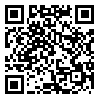Volume 25, Issue 36 (2019)
J Tax Res 2019, 25(36): 211-249 |
Back to browse issues page
1- , mirzaman@alumni.ut.ac.ir
Abstract: (4432 Views)
Understanding public policy- making process and realities perception in this process can help in finding challenges and weak points, and suggest some solutions to improve it. The most important and crucial stage of the public policy process is its initial stage, agenda setting. A problem that enters the limited list of the governmental agenda and the government intends to take action to resolve it, determines which individuals and groups will benefit. In tax policies, due to greater importance and sensitivity than other policies, there are conflicts and competitions in which problem should attract policy- makers’ attention. At present, existing studies on the process of agenda setting in Iran is inadequate and further research is needed to provide a better understanding of this process. Therefore, this study aims to identify the factors affecting the tax agenda setting process in Iran and to identify its actors, using the qualitative approach and the classic grounded theory strategy. To do this, the primary data obtained from interviews with tax policy-makers and individuals close to them and secondary data was used to improve the analysis. Then, by analytical methods of classic grounded theory, the concepts that are factors affecting the process of agenda setting process are extracted. These factors were categorized into three groups: factors related to the problem, political factors and factors related to the policy. The findings include 7 factors and 11 sub-factors related to the problem, 4 political factors and 11 political sub-factors, and 7 factors and 12 sub-factors related to the policy that affect tax agenda setting process. At the end, the most effective actors in the process are also introduced.
Keywords: Agenda Setting, Public Policy-making Process, Tax Policy-making, Policy Agenda, Grounded Theory (GT)
Type of Study: Research |
Subject:
Economic
Received: 2018/07/14 | Accepted: 2018/07/14 | Published: 2018/07/14
Received: 2018/07/14 | Accepted: 2018/07/14 | Published: 2018/07/14
| Rights and permissions | |
 |
This work is licensed under a Creative Commons Attribution-NonCommercial 4.0 International License. |


